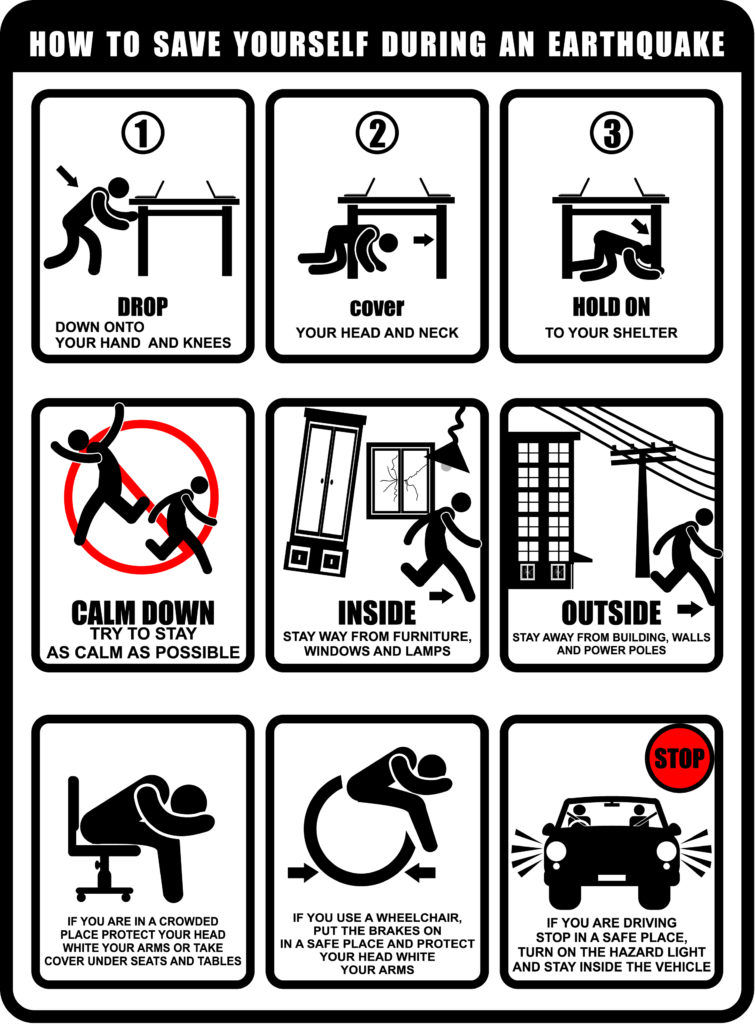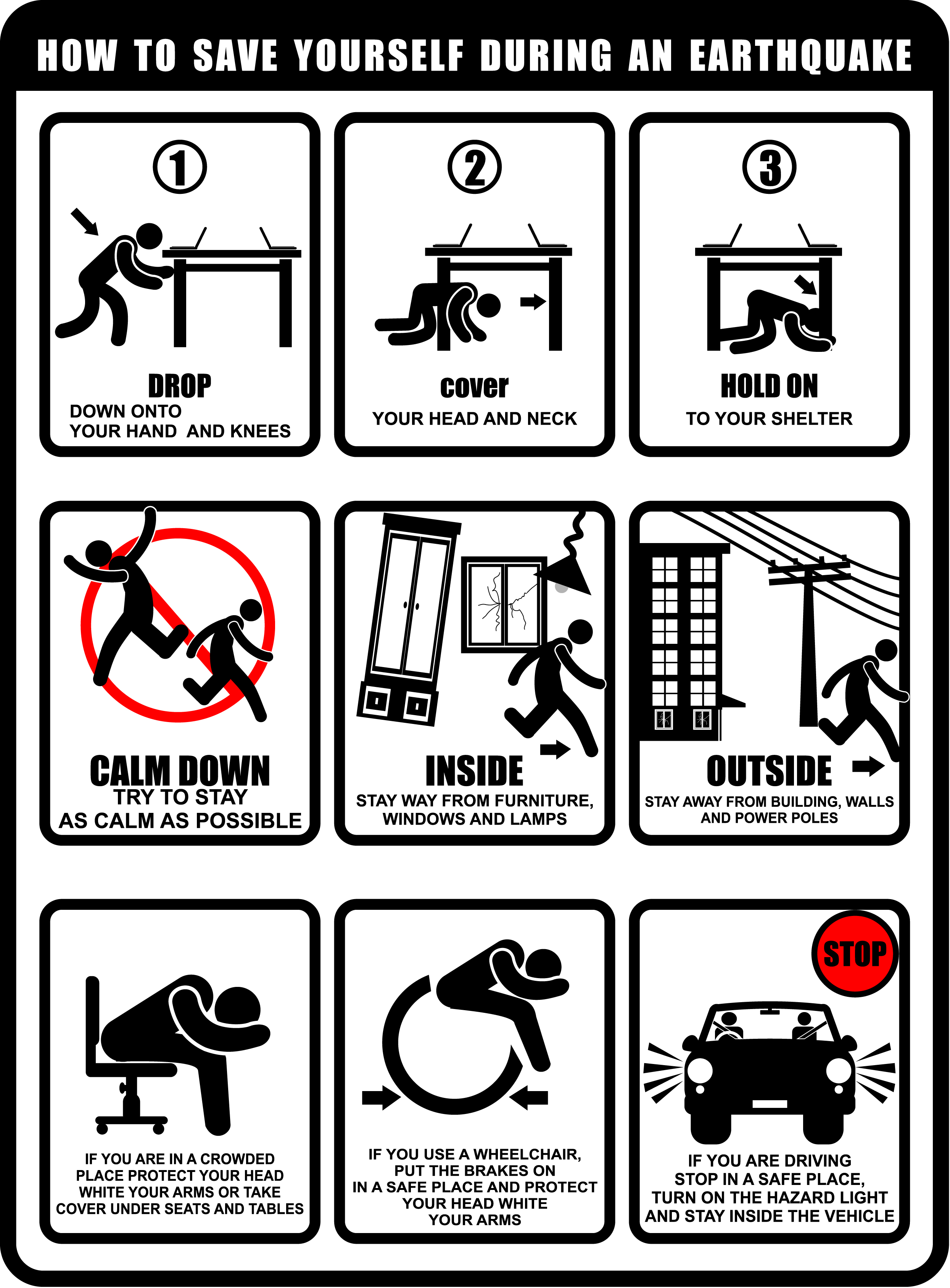
Event highlights the importance of earthquake safety and procedure
By Jessica Berget, Editor-in-Chief
Do you know what to do when the “Big One” hits?
On October 17, at 10:17 am, both Douglas College campuses held an earthquake drill known as the Great British Columbia ShakeOut. The event is province-wide and is used to educate participants on safety and procedures in the case of earthquakes.
The ShakeOut BC website states that BC is at a higher risk for earthquakes in comparison to the rest of Canada. It goes on to say that over 3,000 earthquakes occur in BC every year, most of them being too small for anyone to feel impact of. The website also cautions that there is a risk of a big earthquake that could cause significant damage in the future. ShakeOut BC states that there were almost 570,000 participants in the event in our area of Southwest BC—Metro Vancouver accounting for over 504,000 of those who partook.
The drill encouraged the college community to carry out an earthquake drill known as “Drop, cover, hold on” to inform people how to protect themselves in the potential event of an earthquake.
According to the Facebook page, the event is held to better prepare students and staff, and to review and update emergency preparedness plans and supplies. It is also used as a reminder for the community to sign up and receive DC alerts—an emergency communication system that sends notifications to your phone or email in the case of an emergency on campus that could impede safety.
The emergencies DC Alerts notifies subscribers of are things like snow closures, bomb threats, power outages, or any other safety or security concerns. Students can subscribe to these alerts through their Douglas College accounts under their Emergency Notification Information.
Natural Resources Canada’s website states that the Pacific Coast is the most earthquake prone region in all of Canada—Manitoba and Saskatchewan being the least prone. Earthquakes are caused by tectonic plates slipping past or underneath each other which releases stress, causing the ground above to move and shake, ergo an earthquake.
City of Vancouver says some of the largest earthquakes in the world have been in BC. It also says the city is at high-risk of having another one in the future.
In a Douglas College blog post, Nancy Constable, Director of Safety, Security, and Risk Management emphasized the importance of earthquake drills in the Lower Mainland. “Seismic experts tell us that we can expect a major destructive earthquake in BC,” she said. “We don’t know when it might hit. This drill is about practicing how to protect ourselves when it does.”

